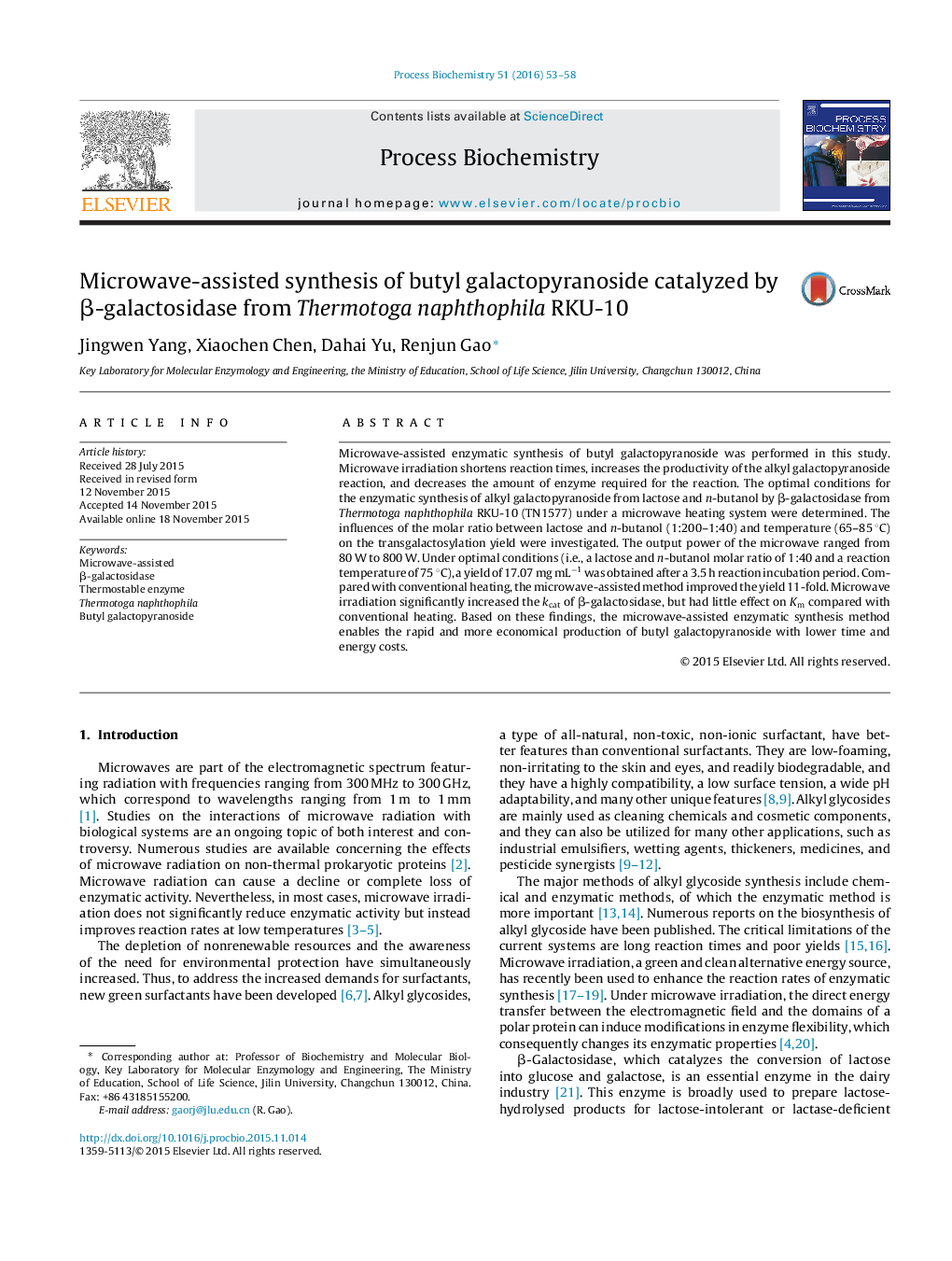| Article ID | Journal | Published Year | Pages | File Type |
|---|---|---|---|---|
| 34237 | Process Biochemistry | 2016 | 6 Pages |
•Microwave greatly accelerates β-galactosidase catalyzed synthesis of butyl galactopyranoside.•Compared to conventional heating microwave enhances volumetric productivity by 11 times.•Microwave irradiation power rather than operation temperature shows a greater effect.•Microwave irradiation does not significantly alter the substrate’s affinity for β-galactosidase.
Microwave-assisted enzymatic synthesis of butyl galactopyranoside was performed in this study. Microwave irradiation shortens reaction times, increases the productivity of the alkyl galactopyranoside reaction, and decreases the amount of enzyme required for the reaction. The optimal conditions for the enzymatic synthesis of alkyl galactopyranoside from lactose and n-butanol by β-galactosidase from Thermotoga naphthophila RKU-10 (TN1577) under a microwave heating system were determined. The influences of the molar ratio between lactose and n-butanol (1:200–1:40) and temperature (65–85 °C) on the transgalactosylation yield were investigated. The output power of the microwave ranged from 80 W to 800 W. Under optimal conditions (i.e., a lactose and n-butanol molar ratio of 1:40 and a reaction temperature of 75 °C), a yield of 17.07 mg mL−1 was obtained after a 3.5 h reaction incubation period. Compared with conventional heating, the microwave-assisted method improved the yield 11-fold. Microwave irradiation significantly increased the kcat of β-galactosidase, but had little effect on Km compared with conventional heating. Based on these findings, the microwave-assisted enzymatic synthesis method enables the rapid and more economical production of butyl galactopyranoside with lower time and energy costs.
Graphical abstractFigure optionsDownload full-size imageDownload as PowerPoint slide
